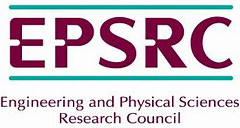tech4health: EPSRC Centre for Doctoral Training in Digital Health Technologies
Apply and key information
This project is funded by:
Summary
Multiple PhD studentships available within tech4health, an EPSRC Centre for Doctoral Training in Digital Health Technologies.
The programme consists of four themes, covering all disease areas:
Theme 1: Diagnostic and prognostic indications
Timely identification of disease strongly influences the outcome and the cost of healthcare, but stretched resources and waiting lists mean new technological solutions are needed to ensure people are diagnosed promptly.
Example projects:
- Breath analysis device for cancer-screening
- Smartphone-based retinal scanning in the home
- Decision support tools for dementia diagnosis using blood-based biomarkers
Theme 2: Treatment and care optimisation
Efficiency and health economics are at the heart of modern healthcare. New tools and methods can improve patients’ care pathways.
Example projects:
- Deep learning models for patient pathway prognostics
- Drones to support public access defibrillator delivery
- Point-of-care sensors for patient-specific dosing of drugs
Theme 3: Disease tracking, surveillance and modelling
Population disease surveillance is crucial to protect people, health systems and the economy from the threat of infectious diseases.
Example projects:
- Mobile phone-connected sensors for self-testing of influenza
- Ultra-sensitive quantum sensors for environmental surveillance of infectious diseases in wastewater
- Automated assessments of an individual’s risk of disease via web search activity
Theme 4: Health data security, interoperability and sharing
Healthcare generates about 30% of all data globally, and NHS data could create value worth around £9.6 billion each year.
Individuals also generate their own health data through apps and wearables that are yet to be interoperable and integrated into care records.
It is vital to create health data systems to allow for secure data sharing.
Example projects:
- Data visualisation to mitigate AI automation bias in radiology
- Data analytics of medical device/software user interaction data for real-world validation and post-market surveillance
- ECG data classification for improved diagnostics using explainable deep learning
The four-year programme will enable you to embark on a substantial research project, building on a tailored training programme including:
- Lectures on the programme’s key themes
- Training in research skills, responsible and sustainable innovation, research methods, systematic literature reviews, ethics and integrity, and research impact
- Technical training e.g. scientific computing, coding, materials and devices, prototyping and product design
Students will also benefit from:
- Our annual doctoral conference, bringing together current students and expert digital health scientists
- Partner ‘sandpits’, providing the opportunity to develop research ideas with real-world impact
- Equality, diversity and inclusion (EDI) training and wellbeing sessions
- Patient, public involvement and engagement (PPIE) training
- A 3-month industry/clinical secondment (Year 1)
- Clinical shadowing scheme (Year 2 onwards)
Visit tech4health.co.uk to find out more about the Centre for Doctoral Training, our staff, researchers and partners.
Essential criteria
Applicants should hold, or expect to obtain, a First or Upper Second Class Honours Degree in a subject relevant to the proposed area of study.
We may also consider applications from those who hold equivalent qualifications, for example, a Lower Second Class Honours Degree plus a Master’s Degree with Distinction.
In exceptional circumstances, the University may consider a portfolio of evidence from applicants who have appropriate professional experience which is equivalent to the learning outcomes of an Honours degree in lieu of academic qualifications.
- Experience using research methods or other approaches relevant to the subject domain
- Sound understanding of subject area as evidenced by a comprehensive research proposal
- A demonstrable interest in the research area associated with the studentship
Desirable Criteria
If the University receives a large number of applicants for the project, the following desirable criteria may be applied to shortlist applicants for interview.
- Masters at 65%
- Work experience relevant to the proposed project
- Publications - peer-reviewed
Equal Opportunities
The University is an equal opportunities employer and welcomes applicants from all sections of the community, particularly from those with disabilities.
Appointment will be made on merit.
Funding and eligibility
This project is funded by:
The University offers the following levels of support:
Engineering and Physical Sciences Research Council (EPSRC)
Due consideration should be given to financing your studies. Further information on cost of living
Fully funded EPSRC PhD scholarships will cover tuition fees and provide a maintenance allowance of £20,780 (25/26) per annum for four years* (subject to satisfactory academic performance). As well as a £12,000 (total over four-year programme) Researcher Training Support Grant (RTSG).
These scholarships are open to applicants worldwide, regardless of residency or domicile.
Applicants who already hold a doctoral degree or who have been registered on a programme of research leading to the award of a doctoral degree on a full-time basis for more than one year (or part-time equivalent) are NOT eligible to apply for an award.
UKRI Terms and Conditions apply - https://www.ukri.org/publications/terms-and-conditions-for-training-funding/
Recommended reading
- The Digital Health Revolution Paperback – Illustrated, 1 Jan. 2019 by Kevin Pereau (Author), Barry Lenson (Editor) 978-0578409726
- Digital Health: Truly Transformational [Print Replica] Kindle Edition by Rajendra Pratap Gupta (Author) 978-8119247592
- Medical Device Design Innovation from Concept to Market Ogrodnik, Peter; 2019; 2nd Edition - Paperback ISBN: 9780128149621 2 September 2025
- Biodesign: The Process of Innovating Medical Technologies Stefanos Zenios (Author), Josh Makower (Author), Paul Yock (Author), Todd J. Brinton (Author), Uday N. Kumar (Author), Lyn Denend (Author), Thomas M. Krummel (Author) 2009;
- Practical Design Control Implementation for Medical Devices;Prakash Srinivasan Timiri Shanmugam; 2023; ISBN 9781032062525
- Biosensors (London) Open University Press ISBN 0-471-94135-2. Hall, E A H 1990
- Sensors: Principles and Applications Hauptmann, P 1993 Carl Hanser Verlag (London) Prentice Hall
- Introductory Bioelectronics: for Engineers and Physical Scientists, R. Pethig and S. Smith, (London) Wiley, 2012, ISBN: 978-1119970873 Sazonov 2014
- Wearable Sensors: Fundamentals, Implementation and Applications Waltham Academic Press Inc Seshadri, D.R., Li, R.T., Voos, J.E. et al.
- Wearable sensors for monitoring the internal and external workload of the athlete. npj Digit. Med. 2, 71 (2019). https://doi.org/10.1038/s41746- 019-0149-2
- Artificial Intelligence: A Modern Approach; Stuart Russell and Peter Norvig, Artificial Intelligence: A Modern Approach, (London) Prentice Hall, 3rd Edition Usher, M J, and Keating, D A 1996 Sensors and Transducers (London) Macmillan Press https://doi.org/10.1007/978-1-349-13345-1
- Webster, J G 2014 The Measurement, Instrumentation and Sensors Handbook 2nd London CRC Press (Informa)
- O’Reilly Media – AI Courses https://www.oreilly.com/
- MIT Open Courses - https://ocw.mit.edu/?utm_source=openlearning&utm_medium=ocwpage
- Deep Learning AI. https://www.deeplearning.ai/
- CourseRA Gen AI https://www.coursera.org/
- McKinney, S.M. et al., “International evaluation of an AI system for breast cancer screening.” Nature (2020). https://www.nature.com/articles/s41586-019-1799-6
- Dayan, I. et al., “Federated learning for predicting clinical outcomes in patients with COVID-19.” Nature Medicine (2021). https://www.nature.com/articles/s41591-021-01506-3
- Dai, L. et al., “A deep learning system for predicting time to progression of diabetic retinopathy.” Nature Medicine (2024) https://www.nature.com/articles/s41591-023-02702-z
- Prediction models for diagnosis and prognosis of covid-19: systematic review and critical appraisal. https://pmc.ncbi.nlm.nih.gov/articles/PMC7222643/
- FDA Perspective on the Regulation of Artificial Intelligence in Health Care and Biomedicine. https://jamanetwork.com/journals/jama/fullarticle/2825146
- Insights from the European Medicines Agency on digital health technology derived endpoints
https://www.sciencedirect.com/science/article/pii/S1359644625001011 - https://www.sciencedirect.com/science/article/pii/S1359644625001011
The Doctoral College at Ulster University


















